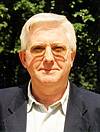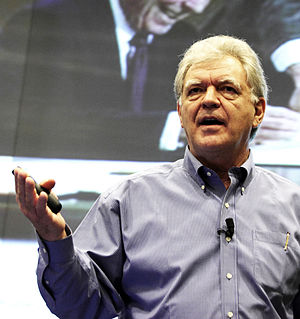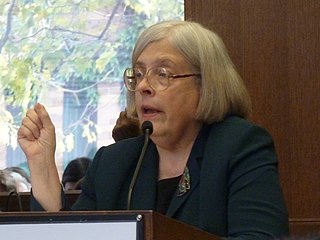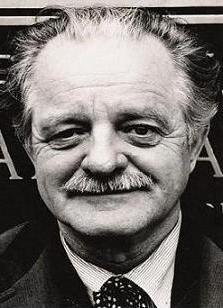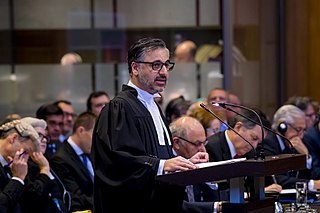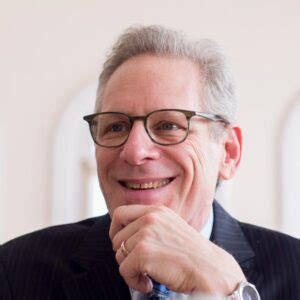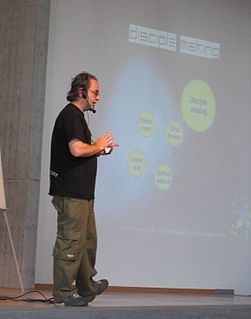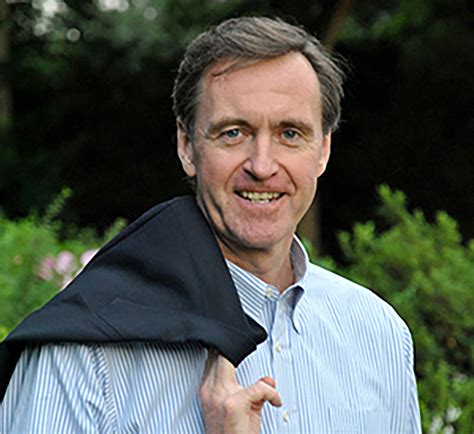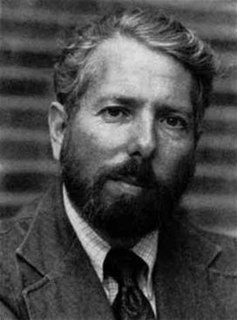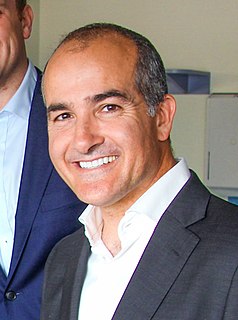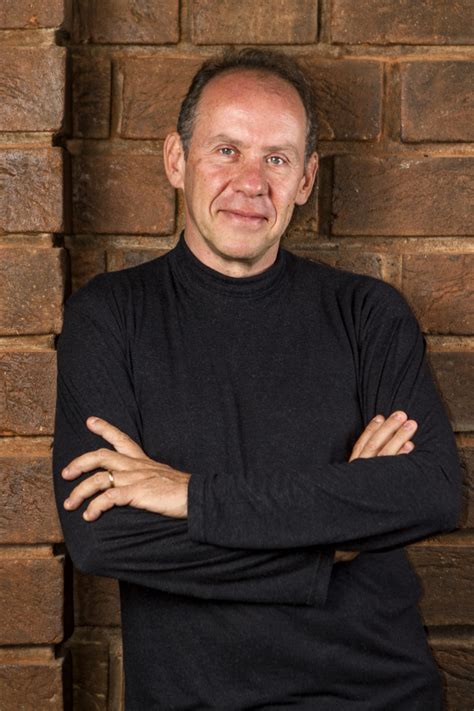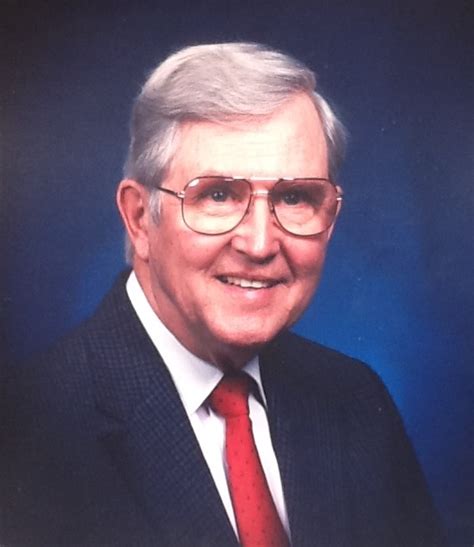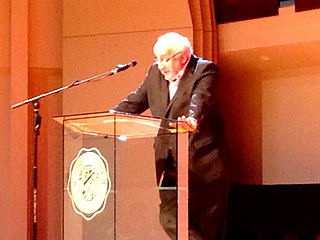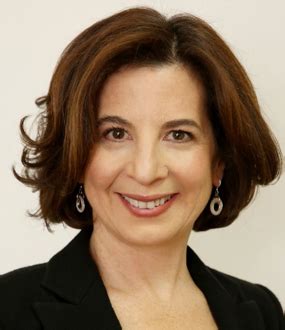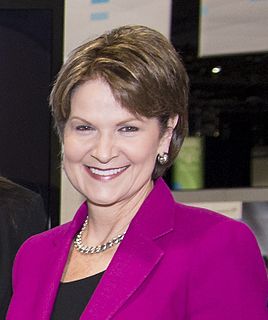Top 185 Organizational Quotes & Sayings - Page 3
Explore popular Organizational quotes.
Last updated on September 19, 2024.
What being among the 'right people' entails is the possession of human capital, rather than organizational capital: an individual reputation, portable skills, and network connections. Career responsibility is squarely in the hands of individuals, a function of their knowledge and networks. Transferable knowledge is more important to a career than firm-specific knowledge.
Endeavor's partnership with Bain took off at just the right moment. We were embarking on our '3.0' organizational strategy, and thanks to the compelling analysis, entrepreneurial zeal and tireless commitment of our Bain team, we've emerged with a world-class plan. We look forward to continuing our high-impact work with Bain!
With the old economics destroyed, organizational forms perfected for industrial production have to be replaced with structures optimized for digital data. It makes increasingly less sense even to talk about a publishing industry, because the core problem publishing solves — the incredible difficulty, complexity, and expense of making something available to the public — has stopped being a problem.
Human artifacts not only include material structures and objects, such as buildings, machines, and automobiles, but they also include organizations, organizational structures like extended families . . . tribes, nations, corporations, churches, political parties, governments, and so on. Some of these may grow unconsciously, but they all originate and are sustained by the images in the human mind.
To grasp organizational life as it is, read novels (!) .... It is my fervent belief that we will never design rational processes that "overcome" such irregularities-don't bother telling that to a consultant. Hence, we should embrace the real, nonrational, nonlinear world with vigor and glee-and develop enterprise and career strategies accordingly.
I started in the law; and the study of law, when it precedes the study of economics, gives you a set of foundation principles about how human beings interact. Economics is very useful, and I studied economics in graduate school. But without understanding the social and organizational context of economics, it becomes a theory without any groundwork.
In fact, technology in, and of, itself does not cause particular kinds of change. It is, essentially, an enabling or facilitating agent. It makes possible new structures, new organizational and geographical arrangements of economic activities, new products and new processes, while not making particular, outcomes inevitable.
Yes I can list all sorts of organizational forms and cultural issues that can get in the way of our accessing our inner creativity and bringing it out in our world. And we can use all kinds of approaches that can transform the organization. But unless we have developed a sense of our Self (who we are at core, at our highest) and our Work (the purpose of our existence, the gift that we have to give to the world) and use that to deal with the inner obstacle, we can't sustain creativity in the face of the chaos of the world.
Ed Lawler and I document that the key to creating good, productive jobs in all industries is to organize work processes and systems in ways that allow employees to contribute significant amounts of "added value" to the products they make and services they provide. When mangers give employees the organizational structure, resources, and authority needed for them to contribute their ideas and efforts, American workers, like those at Harley-Davidson, almost always prove capable of effectively competing against their overseas counterparts.
Someone once said that innovation is a done idea. I agree. I believe that creativity is the individual development and conceptualization and that innovation in an organizational sense is implementing ideas and intentions that come from that creativity. So in a sense, creativity is more a leadership function and innovation is more a managerial function.
A good rule in organizational analysis is that no meeting of the minds is really reached until we talk of specific actions or decisions. We can talk of who is responsible for budgets, or inventory, or quality, but little is settled. It is only when we get down to the action words-measure, compute, prepare, check, endorse, recommend, approve-that we can make clear who is to do what.
A hallmark of high performance leaders is the ability to influence others through all levels and types of communication, from simple interactions to difficult conversations and more complex conflicts, in order to achieve greater team and organizational alignment. High performing leaders are able to unite diverse team members by building common goals and even shared emotions by engaging in powerful and effective dialogue.
Most professionals specialize in only part of the complex community revitalization process. Incomplete efforts usually create messy, expensive, demoralizing failures. Few specialists understand how to bring a place back to life with a holistic approach. If anyone understands the complete revitalization process, it's Storm Cunningham. He's spent over a decade rigorously studying successes and failures worldwide. He can look at a community, regional, or organizational regeneration or redevelopment process, and quickly spot what's wrong...what's missing.
The production of knowledge in schools today is instrumental, wedded to objective outcomes, privatized, and is largely geared to produce consuming subjects. The organizational structures that make such knowledge possible enact serious costs on any viable notion of critical education and critical pedagogy. Teachers are deskilled, largely reduced to teaching for the test, business culture organizes the governance structures of schooling, knowledge is viewed as a commodity, and students are treated reductively as both consumers and workers.
Belonging to a group can provide the child with a variety of resources that an individual friendship often cannot--a sense of collective participation, experience with organizational roles, and group support in the enterprise of growing up. Groups also pose for the child some of the most acute problems of social life--of inclusion and exclusion, conformity and independence.
The timing & characteristics of state intervention affect not only organizational tactics and strategies, but the content and definition of interest itself... Some scholars have directly stressed that state interventions create corporatist forms... the formation, let alone the political capabilities, of such purely socioeconomic phenomena as interest groups and classes depends in significant measure on the structures and activities of the very states the social actors, in turn, seek to influence.
Today we hear a great deal about Organizational Men, Mass Culture, Conformity, the Lonely Crowd, the Power Elite and its Conspiracy of Mediocrity. We forget that the very volume of this criticism is an indication that our society is still radically pluralistic. Not only are there plenty of exceptionalists who take exception to the stereotyping of the mass culture but that very string of epithets comes from a series of books that have been recent best-sellers, symptoms of a popular, living tradition of dissent from things as they are.
It [the free market] is an organizational way of doing things, featuring openness, which enables millions of people to cooperate and compete without demanding a preliminary clearance of pedigree, nationality, color, race, religion, or wealth. It demands only that each person abide by voluntary principles, that is, by fair play. The free market means willing exchange; it is impersonal justice in the economic sphere and excludes coercion, plunder, theft, protectionism, and other anti-free market ways by which goods and services change hands.
Today's environment is beginning to threaten today's organizations, finding them seriously deficient in their nervous system design... The degree of coordination, perception, rational adaptation, etc., which will appear in the next generation of human organizations will drive our present organizational forms, with their clumsy nervous systems, into extinction.
It occurred to me that building a company was the best way to align a group of people towards building something great. And its really... it's a good organizational structure where you can really reward people. If they're building something that's good, you can you work with partners and reward them if the product that you're developing work well. It's a good way to get the best people involved to build something very good.
There are many structural changes, both in organizational practice and social policy, that must also change to enable men and women to have the freedom and support to pursue the lives they want to lead. Fortunately, many more people are today engaged in these efforts than when started working on this issue decades ago.
In short, apostolic movement involves a radical community of disciples, centered on the lordship of Jesus, empowered by the Spirit, built squarely on a fivefold ministry, organized around mission where everyone (not just professionals) is considered an empowered agent, and tends to be decentralized in organizational structure.
To me the church's problem would be a hundred times worse if you felt everyone has written the church off, they don't want to know, there just aren't people to turn to. But it's exactly the opposite: there are such people. We have to find a way in our organizational life to get out of their way, clear the path to find more of these people, and empower them.
Each individual possesses a conscience which to a greater or lesser degree serves to restrain the unimpeded flow of impulses destructive to others. But when he merges his person into an organizational structure, a new creature replaces autonomous man, unhindered by the limitations of individual morality, freed of humane inhibition, mindful only of the sanctions of authority.
Companies tend not to recognize that the way global projects have to be organized and run is fundamentally different from how co-located projects are managed. Everything is different in global projects from the need for organizational stability, a shared strategic context driving the project, the building of a competence in dispersed working, greater focus on planning the project to the need for trust between sites. Yet, most firms merely transfer their co-located best practice to a global arena. This will inevitably result in problems, delays and cost overruns.
I think one of the main challenges that the World Bank faces is creating an organizational structure that doesn't get in the way of its staff. We have fantastic staff. People told me as I was coming into the organization that the greatest asset of the World Bank Group is its staff, and I think there's no question that that's the case.
To paraphrase the late management thinker and writer, Peter Drucker, thinking is hard work, which is why so few people (including actually senior managers) do it. Once there is some "conventional," seemingly-reasonable story, people just accept it and don't ask, "is this actually true? Is it consistent with the data?" And this extends to the highest reaches of organizational life.
The problem facing our people here in America is bigger than all other personal or organizational differences. Therefore, as leaders, we must stop worrying about the threat that we seem to think we pose to each other's personal prestige, and concentrate our united efforts toward solving the unending hurt that is being done daily to our people here in America.
You frequently hear the phrase "culture eats strategy for lunch!" This is something that they don't teach you in school and few leaders appreciate. Cultural influences come at you from two different directions. There is the organizational culture that you must understand if you are to impact significant strategic initiatives. If the "people" are on board, you can achieve anything. Vice versa if they are not - you will not achieve anything.
To survive in modern times, a company must have an organizational structure that accepts change as its basic premise, lets tribal customs thrive, and fosters a power that is derived from respect, not rules. In other words, the successful companies will be the ones that put quality of life first. Do this and the rest - quality of product, productivity of workers, profits for all - will follow.
Consider the many financial industry executives who walked away with many millions as their organizations failed - I think the expression is "failing upward." People also need to understand that their "technical" job performance is correlated with their career success, but again, many other factors such as educational credentials, length of service, and yes, political skills, also contribute to success. So people need to understand business and technical issues but they also need to master organizational dynamics.
The complete novelist would come into the world with a catalog of qualities like this. He would own the concentration of a Trappist monk, the organizational ability of a Prussian field marshal, the insight into human relations of a Viennese psychologist, the discipline of a man who prints the Lord's Prayer on the head of a pin, the exquisite sense of timing of an Olympic gymnast, and by the way, a natural instinct and flair for exceptional use of language.
The same organizational principles which called us forth into self-reflection have called forth self-reflection out of the planet itself. And the problem then is for us to suspect this, act on our suspicion, and be good detectives, and track down the spirit in its lair. And this is what shamans are doing. They are hunters of spirit.
Organizational Development: The New Christian Right of the 1980s was dominated by paper organizations that were essentially the mailing lists of a handful of politicized ministers. Such organizations were better at issuing press releases than doing the hard work of political mobilization and advocacy. By contrast, the movement of the 1990s has generated a plethora of grass-roots organizations that allocate meaningful responsibilities to individual members. The goal is to create an army of grassroots activists who know how to stimulate political change.
I think it's possible for me to approach the whole problem with a broader scope.When you look at something through an, an organizational eye, whether it's a, a religious organization, political organization, or a civic organization, if you look at it only through the eye of that organization, you see what the organization wants you to see. But you lose your ability to be objective.
Somehow ungodly men have developed systems of organization which permit them to work together in states of relative harmony and unity, whereas godly men, refusing to admit that these organizational structures are needed, live in states of chaos and disunity. The tragedy of this fact becomes evident when we realize that many of the successful systems of organization under which the godly men work and which the godly men refuse to accept are biblically based.
Fair Trade is a market-based, entrepreneurial response to business as usual: it helps third-word farmers developing direct market access as well as the organizational and management capacity to add value to their products and take them directly to the global market. Direct trade, a fair price, access to capital and local capacity-building, which are the core strategies of this model, have been successfully building farmers' incomes and self-reliance for more than 50 years.
Here is Max De Pree at his best, and that is very good indeed. In Leading Without Power, De Pree shows us why we cannot master the how-to-dos of effective leadership without also being clear about what leaders?and followers?must be. In doing so, he not only provides us with much practical wisdom about creative leading and organizational health, he also nurtures our souls. This is a book to be savored by all who care about such things as vision, faithfulness, trust, and hope.
High personal standards aren't enough for organizational excellence. You've got to be intolerant of low standards in others. . . . If you accommodate questionable practices in others who touch your organization, you risk soiling its reputation. Anybody whose hands aren't clean can get the place dirty.
Each time we go through a major life change (getting married or divorced, moving, having a family, switching careers, starting a new business, going back to school), we experience a breakdown of our organizational systems. It's inevitable-we are dealing with a new set of realities-and it takes time to process the information and to actually see what there is to organize.
We must move from ... the primacy of technology toward considerations of social justice and equity, from the dictates of organizational convenience toward the aspirations ofself realization and learning, from authoritarianism and dogmatism toward more participation, from uniformity and centralization toward diversity and pluralism, from the concept of work as hard and unavoidable, from life as nasty, brutish, and short toward work as purpose and self~fulfillment, a recognition of leisure as a valid activity in itself.
Sports is a perfect activity in which to see streaks and cycles, organizational and otherwise, in action - and to watch confidence build or erode. There are repeated episodes of performance with similar rules and clear winners or losers. I added team sports to my studies of business because there are excellent parallels to work groups in the performance of sports teams and also excellent parallels to larger, more complex businesses or organizations in the strategy, structure, and culture surrounding any particular team.
The impact of organizational health goes far beyond the walls of a company, extending to customers and vendors, even to spouses and children. It sends people to work in the morning with clarity, hope, and anticipation and brings them home at night with a greater sense of accomplishment, contribution, and self-esteem. The impact of this is as important as it is impossible to measure.
[A] process was going on in which people were transformed into things, into pieces of reality which pure science can calculate and technical science can control. … [T]he safety which is guaranteed by well-functioning mechanisms for the technical control of nature, by the refined psychological control of the person, by the rapidly increasing organizational control of society – this safety is bought at a high price: man, for whom all this was invented as a means, becomes a means himself in the service of means.
Very little attention is paid to improving the decision-making skills of both individual executives and the organizational benchstrength as a whole. Often we find that this is overlooked because there is a common assumption the business executives have all the requisite cognitive skills they need when they come to work for the organization. The problem with that perspective is that it overlooks the fact that thinking skills can be learned and improved at any time during the course of a persons lifetime.
There's real "right brain" creativity that goes into all of the organizational processes that a company utilizes and must continually reinvent in order to conduct its business. But there are also the "left brain" accounting functions that must continually ask how the company is doing financially and whether the creative processes are working for the bottom line.
You can't forget that organizational success flows from the hearts and minds of the men and women you lead. Rather than treating your people as you'd like to be treated, treat them as they would like to be treated. Small gestures like opting for face-to-face meetings or sending personal notes can have an enormous impact on teams and their morale.
Time Management Tips: One can make a radar-like sweep of the horizon to identify time and task challenges while these are still manageable and while we still have a choice. The organizational adage, "the more parts, the more trouble," also applies to words. Multiplying words may actually multiply the probability of being misunderstood; economies in expression (without being taciturn or aloof) not only save time, but usually are more honest and more clear.
For filmmakers who've made multiple movies, they have experience, but they only have experience of themselves as a filmmaker. Whereas I'm bouncing around from different skill sets: the organizational ability of Ridley Scott to the precision of a Ron Howard to the artistic sensibilities of a Peter Weir... to the scope of a Tom Hooper.
Peter Drucker being one of the most important influences because he has helped to think differently about organizational leadership and management. Frankly, I learn something of value from everyone I meet. My Harvard colleagues. My students. The executives I work with. For an eager student, which is what I am, there is so much to be learned from everyday experiences. I'm a sponge. Always will be.
Change masters are - literally - the right people in the right place at the right time. The right people are the ones with the ideas that move beyond the organization's established practice, ideas they can form into visions. The right places are the integrative environments that support innovation, encourage the building of coalitions and teams to support and implement visions. The right times are those moments in the flow of organizational history when it is possible to reconstruct reality on the basis on accumulated innovations to shape a more productive and successful future.
I have participated as a leader in many organizations where the leadership culture was just mean - ugly, where competitiveness, and destructive relationships stymied progress. There should be healthy tension and candid debate, but leadership teams need to practice communication, relationship building, emotional intelligence, and be aligned around common purpose to achieve organizational success. Senior leaders, chief executive officers, others need to ensure they are fostering the right environment for leadership otherwise all of that ugliness will trickle through the organization.







